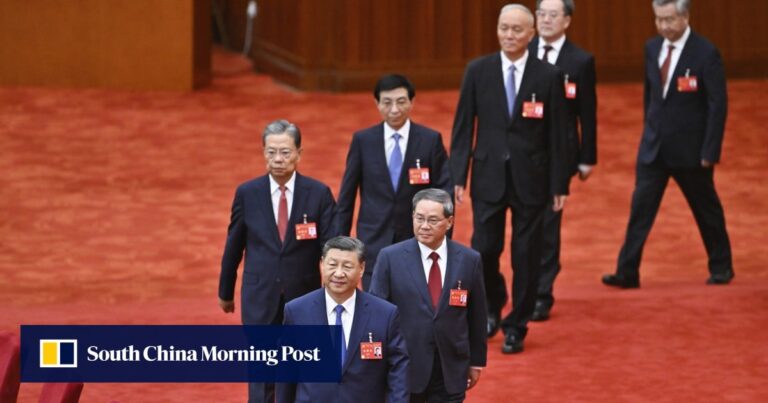One bright spot from the plenary session was specific mention of the government’s set economic growth target for China at around 5 percent for 2024, stoking speculation that a series of policies to support and stimulate the economy may be announced. Details of the policies could be announced at a meeting of the Politburo, the party’s highest power body, scheduled for late July.
Views from leading global investment banks and asset managers at the third plenary session include:
Goldman Sachs analysts Lee-Sheng Wang and Hui Shan wrote:
“We see this announcement as being broadly consistent on the long-term reform direction, but somewhat more positive on the short-term macro policy stance. We believe that further demand easing measures, particularly in the areas of finance and housing, are needed to achieve the full-year real GDP growth target of around 5 percent, and we believe that the July Politburo meeting (around the end of the month) could be an opportunity to take further easing measures and steps.”
Chief Economist for Greater China, HSBC Holdings Liu Jing:
“China will increasingly focus on supporting the development of advanced technologies to boost productivity while improving people’s lives. [which] “This should help further boost consumption-led growth. Fiscal reform and management of ongoing risks, such as local government debt and the real estate sector, should enable greater resource allocation to more productive areas. China’s transition has some time left, but we believe further reforms can further boost productivity along the way.”
“It is noteworthy that the communique emphasizes ‘opening up as a hallmark of China’s modernization.’ We expect the government to prioritize reforms that foster foreign investment.”
Harry Murphy-Cruz, economist at Moody’s Analytics:
“The statement, as always, is lacking in detail, but China should issue a comprehensive document outlining its decisions in the coming weeks. For now, the statement gets most of the things right.”
Ahead of the four-day meeting, we called for reforms on property, taxes, local government debt, and support for private enterprise and investment, all of which were mentioned. The mention of support for domestic consumption is also a positive development.
There remains a tension between the expansion of the supply side of the economy and the growth of household spending. As expected, there was little policy at this point. The Third Plenum generally takes a long-term view, but it was still a missed opportunity. The Central Committee’s mention of being “firmly committed to achieving this year’s economic and social development targets” is an unusually short-term and forthright target, suggesting that further support is being given to help China achieve its goals. [2024] Growth goals.
The statement builds on existing strategies, emphasizing a desire to shift the economy away from real estate and building-led growth toward advanced technologies such as artificial intelligence, semiconductors and green technology. National security and supply chain resilience also feature prominently.”
Pierre Lau, China equity strategist at Citigroup:
From a strategic perspective, we continue to favor globally driven sectors such as exporters and commodity names (especially gold) over domestically oriented consumer and real estate names, given the potential for continued economic weakness in the second half of 2024.”
Andrea Yang, fixed income portfolio manager at JPMorgan Asset Management:
“In the medium to long term, we see no significant change in policymakers’ pursuit of new growth models. Therefore, the real estate sector is expected to focus on managing downside risks rather than bazooka-like stimulus. A similar approach will apply to local government debt management.”
The meeting noted that authorities are focused on achieving this year’s growth targets. [the growth target of] It expects it to remain at around 5% and that further policy support will come in the second half of the year, particularly fiscally targeted manufacturing/infrastructure fixed asset investment and goods trade-in programs.
Regarding Chinese government bonds, [policy] “The bazooka is limiting the rise in CGB yields, while the People’s Bank of China’s intervention is limiting the decline. On FX, policymakers are likely to favor stable currencies, but as Fed rate cuts become more concrete and trade tensions rise, there could be more flexibility for the renminbi to weaken against the USD.”
DBS Analyst:
“At the third plenary session, recent economic developments were also discussed and the 2024 GDP target was reaffirmed. We believe this will require further policy support, such as accelerating local government special bond issuance and lowering interest rates. Expectations for further policy support will be one of the catalysts driving the market in the second half of the year.”
Economist at Société Générale Yao Wei and Michelle Lam:
“The statement, consistent with low expectations prior to the event, offers no significant new information. As with the April Politburo meeting, it reaffirms the commitment to achieving this year’s economic and development goals by actively increasing domestic demand and developing new, high-quality productive forces.”
With additional reporting by Mia Castagnone and Jiaxin Li.

